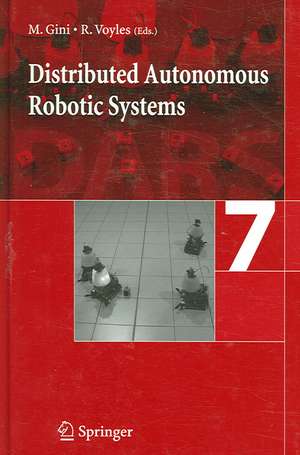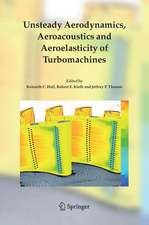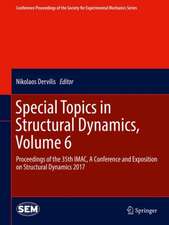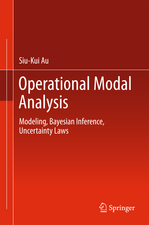Distributed Autonomous Robotic Systems 7
Editat de Maria Gini, Richard Voylesen Limba Engleză Hardback – 18 iul 2006
| Toate formatele și edițiile | Preț | Express |
|---|---|---|
| Paperback (1) | 943.25 lei 6-8 săpt. | |
| Springer – 29 oct 2014 | 943.25 lei 6-8 săpt. | |
| Hardback (1) | 949.42 lei 6-8 săpt. | |
| Springer – 18 iul 2006 | 949.42 lei 6-8 săpt. |
Preț: 949.42 lei
Preț vechi: 1157.82 lei
-18% Nou
Puncte Express: 1424
Preț estimativ în valută:
181.70€ • 188.99$ • 149.100£
181.70€ • 188.99$ • 149.100£
Carte tipărită la comandă
Livrare economică 14-28 aprilie
Preluare comenzi: 021 569.72.76
Specificații
ISBN-13: 9784431358787
ISBN-10: 4431358781
Pagini: 268
Ilustrații: XVII, 248 p.
Dimensiuni: 155 x 235 x 20 mm
Greutate: 0.56 kg
Ediția:2006
Editura: Springer
Colecția Springer
Locul publicării:Tokyo, Japan
ISBN-10: 4431358781
Pagini: 268
Ilustrații: XVII, 248 p.
Dimensiuni: 155 x 235 x 20 mm
Greutate: 0.56 kg
Ediția:2006
Editura: Springer
Colecția Springer
Locul publicării:Tokyo, Japan
Public țintă
ResearchDescriere
The goalof the 8th Symposium on Distributed Autonomous Robotic Systems (DARS) is to exchange and stimulate research ideas to realize advanced d- tributed robotic systems. Technologies, algorithms, and system architectures will be presented and discussed during the symposium. DARS 2006 builds upon past successes and provides an exciting envir- ment for researchers to present and discuss their novel theoretical results, - plementations, and applications. DARS successfully took place in 1992, 1994, and 1996 in Japan (Riken, Wako), in 1998 in Germany (Karlsruhe), in 2000 in Knoxville (Tennessee, USA), in 2002 at Fukuoka (Japan), and in 2004 at LAAS in Toulouse (France). DARS 2006 will be held in the Minneapolis campus of the University of Minnesota, in the Electrical Engineering and Computer Science building. A total of 42 technical papers were submitted by authors from multiple countries. All the submissions were rigorouslyreviewed by the ProgramC- mittee. Of those submissions 24 were accepted. The overall outcome of the revision process is an excellent selection of papers that showcase the research in distributed autonomous robotics today. We would like to take this opportunity to thank everyone involved with the organization of DARS 2006. First, we would like to thank the members of the Program Committee, who did a thorough and conscientious job in reviewing a largenumber of papers.The members of the AdvisoryCommtitee providedinvaluablehelpandsupportthroughouttheprocessoforganizingthe conference. We warmly welcome all representatives from industry, government, and academia joining us in Minneapolis in July 2006.
Cuprins
Multi-robot User Interface Modeling.- System Identification of Self-Organizing Robotic Swarms.- Frontier-Graph Exploration for Multi-Robot Systems in an Unknown Indoor Environment.- Learning when to Auction and when to Bid.- Simultaneous Planning, Localization, and Mapping in a Camera Sensor Network.- Cooperative Multi-robot Target Tracking.- Synchronization Control by Structural Modification of Nonlinear Oscillator Network.- Robotic Swarm Dispersion Using Wireless Intensity Signals.- A Particle Swarm-based Mobile Sensor Network for Odor Source Localization in a Dynamic Environment.- Distributed Robotic: a Language Approach.- Adaptive Robotic Communication Using Coordination Costs.- Distributed Metamorphosis Control of a Modular Robotic System M-TRAN.- Single Operator, Multiple Robots: Call-Request Handling in Tight-Coordination Tasks.- A Method for Building Small-Size Segment-Based Maps.- A Study on Proportion Regulation Model for Multi-Robot System.- Distributed, Play-Based Role Assignment for Robot Teams in Dynamic Environments.- A Comparative Study of Market-Based and Threshold-Based Task Allocation.- What to Communicate? Execution-Time Decision in Multi-agent POMDPs.- A Distributed Biconnectivity Check.- Empirical Evaluation of Auction-Based Coordination of AUVs in a Realistic Simulated Mine Countermeasure Task.- A Distributed Multi-Robot Cooperation Framework for Real Time Task Achievement.- Preliminary Results in Tracking Mobile Targets Using Range Sensors from Multiple Robots.- Principled Synthesis for Large-Scale Systems: Task Sequencing.- Market-Based Multi-Robot Coalition Formation.
Caracteristici
Includes the papers that have been selected by an international program committee for presentation at the 8th International Symposium on Distributed Autonomous Robotic Systems
Papers present state-of-the-art research advances in the field of distributed robotics
What makes this book distinctive is the emphasis on using multiple robots and on making them autonomous, as opposed to being teleoperated
Novel algorithms, system architectures, technologies, and numerous applications are covered
Papers present state-of-the-art research advances in the field of distributed robotics
What makes this book distinctive is the emphasis on using multiple robots and on making them autonomous, as opposed to being teleoperated
Novel algorithms, system architectures, technologies, and numerous applications are covered
















